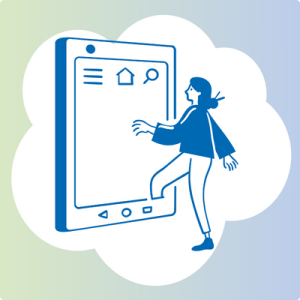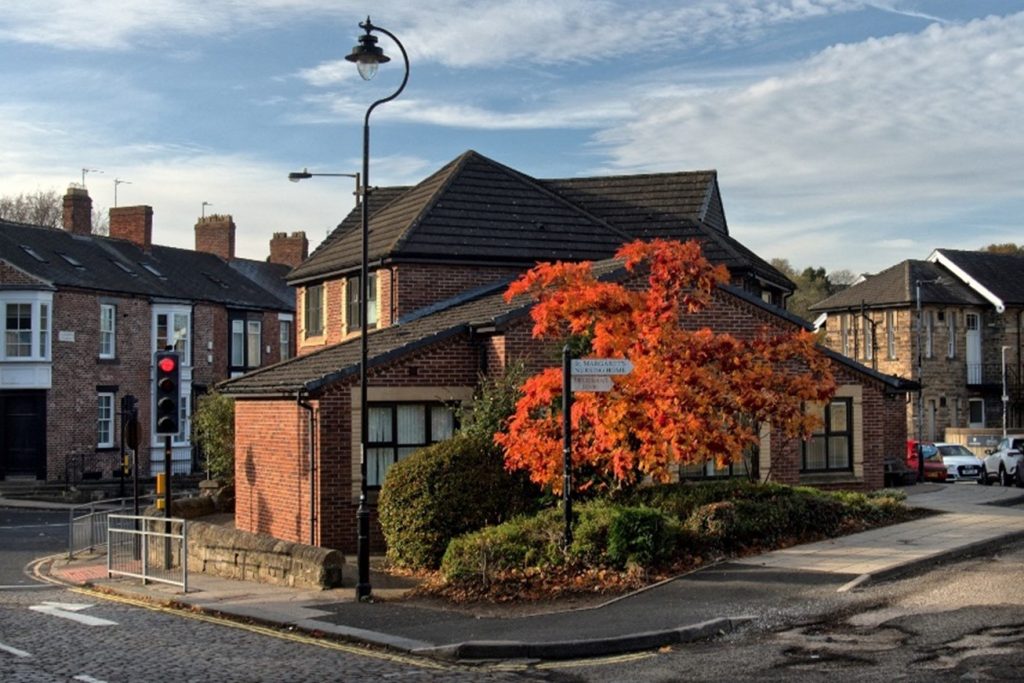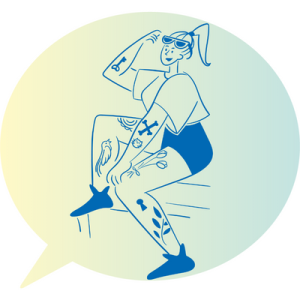On this page
Recovery College Online

Recovery College Online provides mental health and wellbeing information, resources, as well as free online courses, available for everyone.
The website and courses have been created using a wide range of resources and expertise, including real-life experiences.
Anyone can sign up for an account and there is no referral needed.
View the latest course prospectus Visit the Recovery College OnlineARCH Recovery College in Durham

Courses are available for adults struggling with their mental health, carers and staff, based on recovery principles.
ARCH Recovery College is in central Durham at St Margaret’s Health Centre.
We offer:
- A resource base for adults struggling with their mental health, carers and staff
- An opportunity for people with lived experience of mental health issues to develop skills and understanding
- An opportunity for staff to become more recovery-focused and to consider their own wellbeing
- A place where adults struggling with their mental health, carers and staff learn together
- Courses delivered in co-production by experts by experience and experts by profession

Our ARCH Recovery College timetable
Download April 2024 timetable for Arch Recovery College Download March 2024 timetable for Arch Recovery College Find out more about our coursesRecent and upcoming sessions
Complementary therapies for stress (three sessions)
Wednesday 3, 10 and 17 April, 10.30am – 12.30pm
Exploring phobias workshop (one session)
Wednesday 3 April, 1.30pm – 4pm
Walking for wellbeing (weekly)
Thursday 4, 11, 18 and 25 April, 10.30am – 12noon
Mind, body and spirit (weekly)
Thursday 4, 11, 18 and 25 April, 1pm – 2.30pm
Coming off medication and medication withdrawal (one session)
Friday 5 April, 1.30pm – 4pm
Motivation (one session)
Tuesday 9 April, 1.30pm – 4pm
Understanding health anxiety (one session)
Wednesday 10 April, 1.30pm – 4pm
Building resilience and wellbeing workshop (monthly)
Friday 12 April, 10.30am – 12.30pm
Walking the seasons (NEW VENUE) Crook Hall and Gardens
Friday 12 April, 1.30pm – 3.30pm
Sleep well (two sessions)
Tuesday 16 and 23 April, 10am – 12.30pm
Living with Psychosis (two sessions)
Monday 22 and 29 April, 10am – 12.30pm
Photography walk (weekly)
Friday 5, 12, 19 and 26 April,10.30am – 12.30pm
How to book a course at ARCH recovery college
If you are interested in attending a course, first you need to be enrolled with the college.
To do this, you need to contact the office on 0191 451 0890 or email
TEWV.recoverycollege@nhs.net and arrange a meeting to be enrolled.
You may also be referred to the college by your care team.
One of the peer trainers will meet with you face-to-face to discuss what kind of courses may be of interest to you as well as taking your contact details and completing a short questionnaire.
If you have any other queries however, please contact the college team who will be more than happy to help you.
For further information
Durham ARCH Recovery College has been developed with the support of the following organisations:
- Aspire
- Durham County Council
- Durham County Wide Forum
- Durham Dales, Easington and and Sedgefield Clinical Commissioning Group
- North Durham Clinical Commissioning Group
- Stonham Home Group
- Waddington Street Centre
Follow us on Twitter @archrecovery
Like us on Facebook /durhamrecoverycollege
Is ARCH Recovery College for me?
We offer a number of courses which are primarily based around group discussion.
This includes sharing ideas and opinions; sharing our stories of recovery and our journeys so far and talking about different diagnosis to gain a greater understanding of mental health.
The group size is usually between 10 and 12 people which allows for good discussion and gives each person the chance to share their ideas and experiences if they wish.
Each of our sessions is delivered by an expert by profession and an expert by experience, which often gives a differing perspective on the topic being discussed.
Content on the website has been co-written from different perspectives and includes overview from those with lived experience. There are service user stories on the site along with site information, views and opinions, as well as the e-learning resources.
What do we mean by recovery?

Recovery is a personal journey. You might already have, or are at least developing, your own definition of what recovery means to you.
Personal recovery is felt to be much more relevant when we are thinking about mental health and distress, as often it is not the diagnosed symptoms that are the most troubling thing for people. They may wish to have a greater sense of purpose, an understanding of their distress or more control over what happens to them.
Although reducing symptoms or certain feelings by using things like medication and therapy is very important and useful for many people, personal recovery goes way beyond treatment.
Everyone’s ideas about their own recovery will be different, and this is why it can be difficult to describe exactly what recovery is.